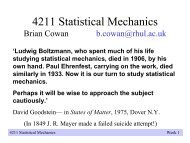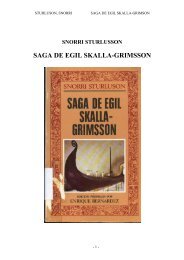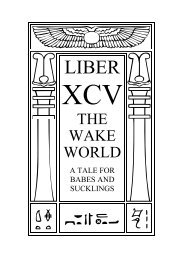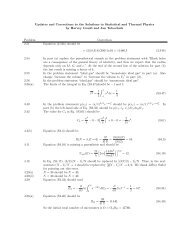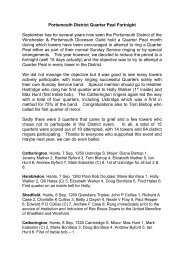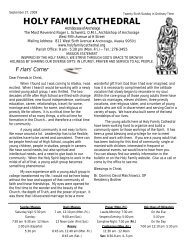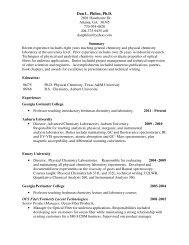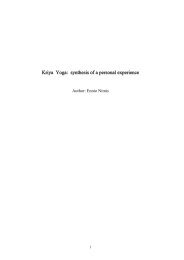A Critique of The German Ideology
A Critique of The German Ideology
A Critique of The German Ideology
You also want an ePaper? Increase the reach of your titles
YUMPU automatically turns print PDFs into web optimized ePapers that Google loves.
their interest; or if their labour was not such as had to be learned, and therefore not <strong>of</strong> the<br />
guild type, they became day-labourers and never managed to organise, remaining an<br />
unorganised rabble. <strong>The</strong> need for day-labourers in the towns created the rabble.<br />
<strong>The</strong>se towns were true "associations", called forth by the direct need, the care <strong>of</strong><br />
providing for the protection <strong>of</strong> property, and <strong>of</strong> multiplying the means <strong>of</strong> production and<br />
defence <strong>of</strong> the separate members. <strong>The</strong> rabble <strong>of</strong> these towns was devoid <strong>of</strong> any power,<br />
composed as it was <strong>of</strong> individuals strange to one another who had entered separately, and<br />
who stood unorganised over against an organised power, armed for war, and jealously<br />
watching over them. <strong>The</strong> journeymen and apprentices were organised in each craft as it<br />
best suited the interest <strong>of</strong> the masters. <strong>The</strong> patriarchal relationship existing between them<br />
and their masters gave the latter a double power -- on the one hand because <strong>of</strong> their<br />
influence on the whole life <strong>of</strong> the journeymen, and on the other because, for the<br />
journeymen who worked with the same master, it was a real bond which held them<br />
together against the journeymen <strong>of</strong> other masters and separated them from these. And<br />
finally, the journeymen were bound to the existing order by their simple interest in<br />
becoming masters themselves. While, therefore, the rabble at least carried out revolts<br />
against the whole municipal order, revolts which remained completely ineffective<br />
because <strong>of</strong> their powerlessness, the journeymen never got further than small acts <strong>of</strong><br />
insubordination within separate guilds, such as belong to the very nature <strong>of</strong> the<br />
guild-system. <strong>The</strong> great risings <strong>of</strong> the Middle Ages all radiated from the country, but<br />
equally remained totally ineffective because <strong>of</strong> the isolation and consequent crudity <strong>of</strong> the<br />
peasants.<br />
In the towns, the division <strong>of</strong> labour between the individual guilds was as yet [quite<br />
naturally derived] and, in the guilds themselves, not at all developed between the<br />
individual workers. Every workman had to be versed in a whole round <strong>of</strong> tasks, had to be<br />
able to make everything that was to be made with his tools. <strong>The</strong> limited commerce and<br />
the scanty communication between the individual towns, the lack <strong>of</strong> population and the<br />
narrow needs did not allow <strong>of</strong> a higher division <strong>of</strong> labour, and therefore every man who<br />
wished to become a master had to be pr<strong>of</strong>icient in the whole <strong>of</strong> his craft. Thus there is<br />
found with medieval craftsmen an interest in their special work and in pr<strong>of</strong>iciency in it,<br />
which was capable <strong>of</strong> rising to a narrow artistic sense. For this very reason, however,<br />
every medieval craftsman was completely absorbed in his work, to which he had a<br />
contented, slavish relationship, and to which he was subjected to a far greater extent than<br />
the modern worker, whose work is a matter <strong>of</strong> indifference to him.<br />
Capital in these towns was a naturally derived capital, consisting <strong>of</strong> a house, the tools <strong>of</strong><br />
the craft, and the natural, hereditary customers; and not being realisable, on account <strong>of</strong><br />
the backwardness <strong>of</strong> commerce and the lack <strong>of</strong> circulation, it descended from father to<br />
son. Unlike modern capital, which can be assessed in money and which may be<br />
indifferently invested in this thing or that, this capital was directly connected with the<br />
particular work <strong>of</strong> the owner, inseparable from it and to this extent estate capital.



